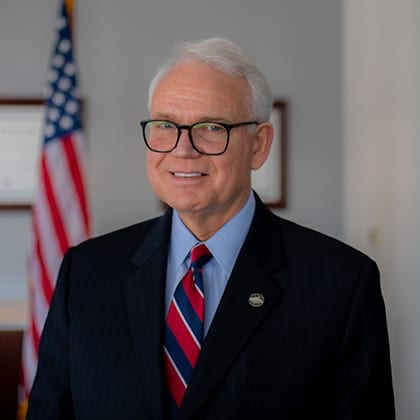
Written by Rick B. Larsen
March 17, 2019
Originally published in The Hill.
During a recent visit, my doctor forever changed my view of tolerance when he asked, “How are you tolerating the medication?” To him, tolerance meant: Are the side effects worth the benefits? I reasoned that I would prefer not to take the medication – frankly, it was making me queasy – but if there is benefit down the road, I will tolerate it until I no longer need to tolerate it. And, if it gets too uncomfortable, I will choose to stop tolerating it.
But when it comes to tolerance in the context of politics, principles and people, perhaps we should consider removing it from our social vernacular altogether.
Why? You could say it’s not what it used to be: Voltaire wrote, “What is tolerance? It is the consequence of humanity. We are all formed of frailty and error; let us pardon reciprocally each other’s folly.”
And were tolerance to be practiced today with that level of reciprocity and grace, it would remain a virtue. But in a world where the bar is set at or well below civility, tolerance is a problem. It implies, “I’m right – you are wrong, but I can put up with you – for now.” This is the root cause of gridlock and payback.
Tolerance today is a state subject to change. In its worst form, it is the silent waiting period preceding retribution. We are watching it germinate through executive orders and national emergency declarations, because it is only a matter of time before the other side – usually vocal, sometimes restrained, but nevertheless only temporarily tolerant — gains control and tolerates no longer.
Examples of its inadequacy are all around us, justifying this utopian call for a higher level of understanding and engagement.
Consider Rep. Illhan Omar (D-Minn.) — a freshman member of Congress elected to a new majority and given a mandate — even from some moderates, to restore our system of checks and balances.
But what did she do? She engaged in the very behavior she decried as a candidate. Rather than transcending the perceived racism and nationalism she ran against, she chose to tolerate no longer and give voice to what many consider anti-Semitic views. She — and others in this freshman class — have been tolerant for as long as they had to be. Once given the platform and power, their tolerance evaporates.
There are reasons tolerance has become a way station on the path to revenge. One powerful reason is “motive attribution asymmetry” — the perception that your ideology is based in love, while your opponent’s is based in hate. Arthur Brooks has studied this. He teaches, “Researchers found that the average Republican and the average Democrat today suffer from a level of motive attribution asymmetry that is comparable with that of Palestinians and Israelis. Each side thinks it is driven by benevolence, while the other is evil and motivated by hatred – and is therefore an enemy with whom one cannot negotiate or compromise.”
We should recognize the toxicity of temporary tolerance and carefully monitor its use. Let us try instead an approach based on love and respect, requiring of ourselves honest inquiry when dealing with others. This is not a path toward abandoning our principles. It is the path to truth-based debate and principle-based compromise. It is a way to achieve solutions, based on fact, that work for everyone – not the kind that are tolerated by one side until the day when they regain power and need tolerate no longer.
Imagine the possible outcomes — on budget, immigration and environmental issues; on LGBTQ, racial and religious liberty issues — if all sides committed to truth and respect. If we can envision this approach, we can regain it in our homes and communities, and eventually our politics. We would never again have to weigh the list of possible side effects that accompany insincere tolerance, including frequent anger, compassion atrophy, dizzying spells of dishonesty, instability of character and deep, chronic division.
Divisions today are different. We are not two political parties, but deeply sub-divided parties. Millennials are the largest bloc of potential voters. The racial makeup of communities has changed. Our next election may very well put to a ballot not a choice between Republicans and Democrats, but a choice between free markets and socialism. Thanks to identity politics, people can be so many things before simply identifying as fellow Americans. When research describes asymmetry and conflict comparable to the generational, religious and cultural divides of Palestinians and Israelis, mere tolerance is no longer enough.
More Insights
Read More
Ignoring the text of the Constitution is a mistake
A written Constitution is entirely superfluous if the document is simply meant to give the people what they want.
What you need to know about election integrity
It should be easy to vote and hard to cheat. This oft-quoted phrase has been articulated as a guiding principle by many elected officials wading into voting and election policy debates in recent years. So why has this issue been so contentious, and what’s the solution?
How transparent are school districts about curriculum?
Utah districts don’t need to wait for legislation to be transparent – many have sought to be transparent on their own. District leaders interested in this reform can do several things right away.


